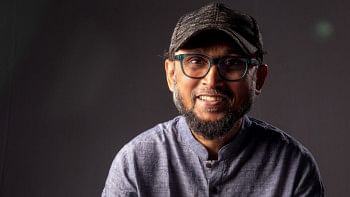Non-aligned conference and Bangladesh
THE Non-Aligned Conference will be held in the resort city of Sharm el -Sheikh in Egypt on July 15-16. It is reported that Bangladesh Prime Minister Sheikh Hasina will leave for the summit on July 4.
The Non-aligned Movement (NAM) consists of 118 developing countries (two-thirds of humankind). It will be a good gathering of heads of states/government. The Bangladesh prime minister is reportedly expected to meet as many as 12 leaders on sidelines, including Indian Prime Minister Dr. Manmohan Singh.
NAM was founded in 1961 in Belgrade. Only 25 countries attended the Belgrade meet. The seed of NAM was, however, sown at the 1955 Bandung (Indonesia) Conference of Asian-African leaders.
The principal purpose of NAM was to distance itself from the influence of the two superpowers during the Cold War. Non-alignment is not neutrality. The policy of neutrality has the connotation of being "isolationist," while the underlying principle of non-alignment is active involvement in regional and global issues without being influenced by pressure from any superpower.
Bangladesh joined the NAM in 1973 and Bangabandhu Sheikh Mujibur Rahman participated in the NAM summit at Algiers in the same year. The decision was motivated by his desire to widen and broaden Bangladesh's relationship with other developing countries. His attendance was a big exposure for Bangladesh, and many non-aligned leaders were impressed by his personality.
One of the important features of NAM is the flexibility of policy of member-countries as there is no compulsion of bloc votes. Bangladesh is able to decide an issue on its merits from its national perspective and vote for or against it.
Although the leaders of the NAM played a key role in the process of de-colonisation of former colonies, they neglected the most fundamental economic and social issue, i.e. reduction of poverty in the member-countries. The leaders frittered away their energy on political and ideological issues, rather than on "bread and butter" questions.
The gap between rich and poor countries is larger at the beginning of the 21st century than it was at the beginning of the 20th century. It is estimated that 800 million people go hungry in NAM countries.
The member-countries have failed to make greater use of their own resources, national and collective, to be self-reliant. They also did not take united action as a group in securing global reforms through negotiations with industrialised countries.
Corruption and nepotism plagued almost all NAM countries. Greater dependence on imports of luxuries of life had been allowed for the comfort of the rich, neglecting the needs of the vast majority of the poor.
Some of the leaders had no accountability, and considered their countries as private property and acquired weapons to crush public dissent to continue their power.
NAM should redefine the organisation because the world is no longer defined by the two warring Cold War blocs. Many suggest the NAM has to revise its policies and priorities if it wants to play a key role in the 21st century. They have to focus on economic management and social harmony for the benefit of their people so that they get access to education, higher quality of life and political freedom.
In the 21st century, combating terrorism, pandemic diseases and adverse effects of global climate change, as well as security for fresh water security, energy and food, among others, have to be accorded top priority.
Globalisation has distorted the pattern of trade for developing countries. Access to markets of goods from NAM countries to rich industrialised countries would be more beneficial than aid. Bangladesh, as the leader of LDCs may demand greater free access of their goods to the global market.
Furthermore, mobility of labour from developing countries has been restricted or prohibited, while capital is allowed to move freely in and from NAM countries. The NAM countries must seriously devise ways and means so that global communication, migration, investment and trade can bring benefits to them.
Another challenge is resolving conflicts or inter-state disputes among them. Yet, one rarely hears leaders of warring countries expressing their firm determination to resolve the disputes or sources of conflicts.
A mandatory dispute-resolution mechanism may be considered within NAM to mediate or arbitrate or judicially settle the inter-states conflicts.
Another fact that has dogged the NAM countries is the division among them, some of them are pro-West, and some of them are anti-West. Many observers say the conference is a gathering of disharmonious voices. The split weakens the NAM as it is unable to speak in unison on core issues.
Finally, NAM has to re-invent itself and direct its energies to remove poverty among their nationals. The days of political rhetoric are gone; socio-economic development with equitable distribution of national wealth among people should be the main focus of NAM.

 For all latest news, follow The Daily Star's Google News channel.
For all latest news, follow The Daily Star's Google News channel. 



Comments